Comparing quantities Math Worksheets for Ages 3-4
5 filtered results
-
From - To
Discover our engaging "Comparing Quantities" math worksheets designed specifically for children aged 3-4! These printable activities foster critical early math skills while making learning fun. Kids will explore concepts like more than, less than, and equal to through interactive exercises featuring colorful visuals and relatable examples. Each worksheet encourages hands-on practice, enhancing number recognition and comparative reasoning in young learners. Perfect for parents and educators, our resources are ideal for home or classroom use. Help your little ones build a solid foundation in math while they play and learn. Start your child's math journey today with our delightful worksheets!
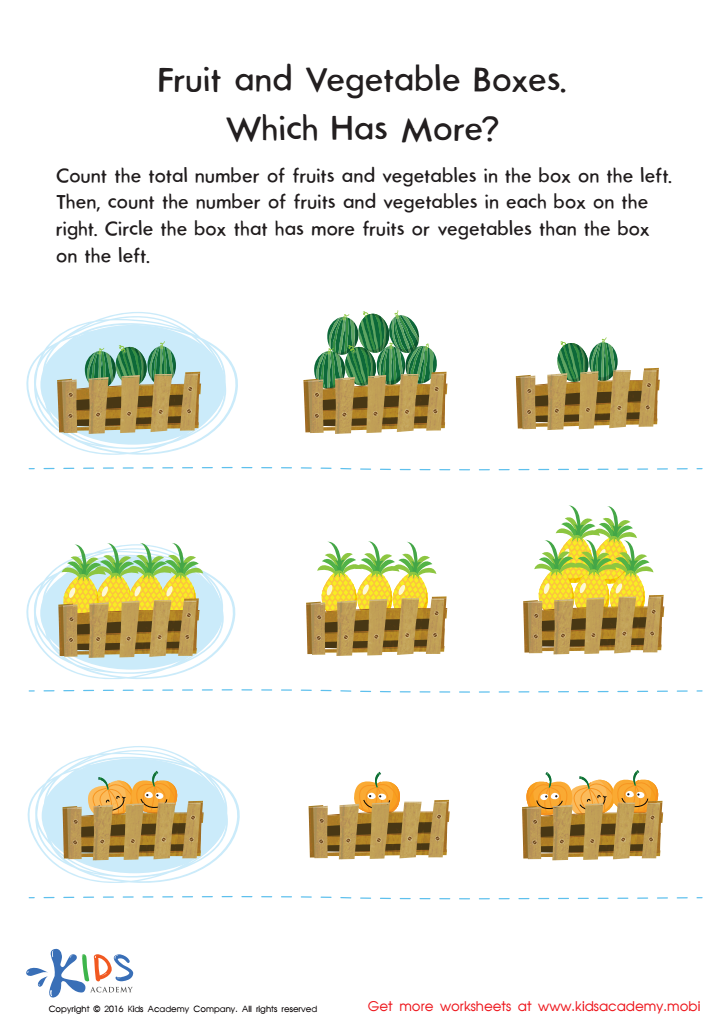

Which Has More? Size Worksheet
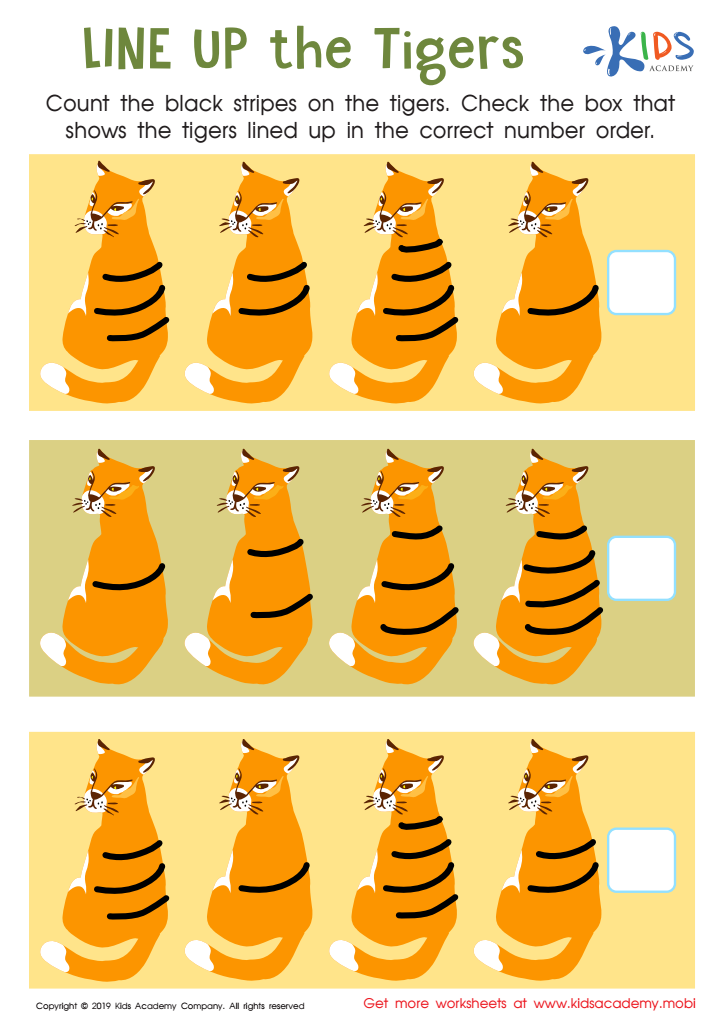

Line up the Tigers Worksheet
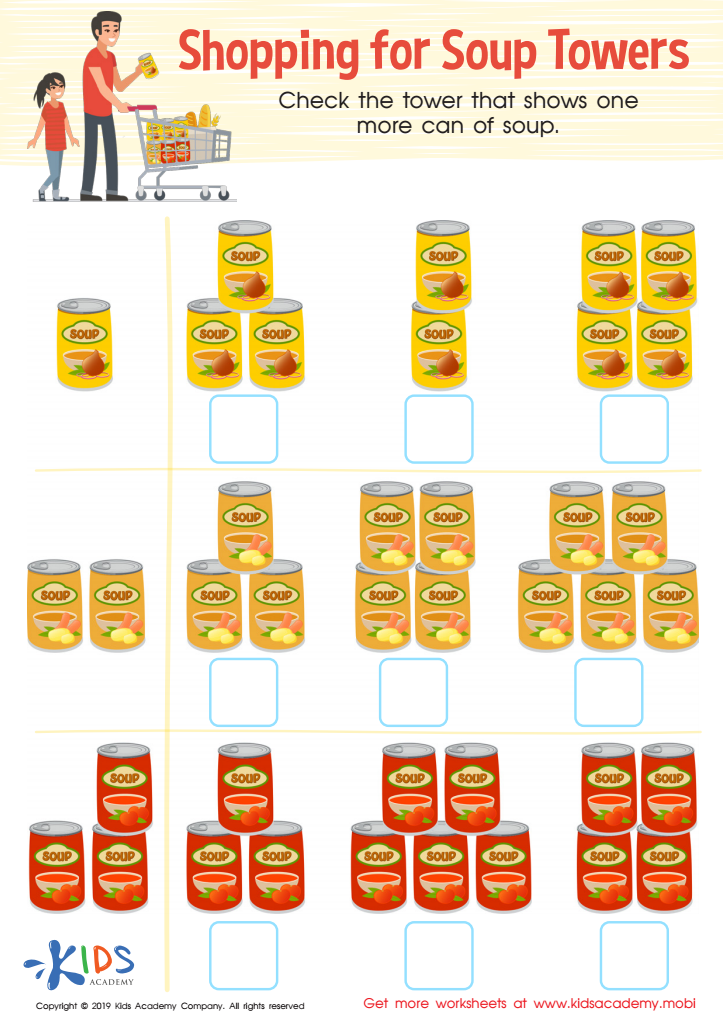

Soup Towers Worksheet
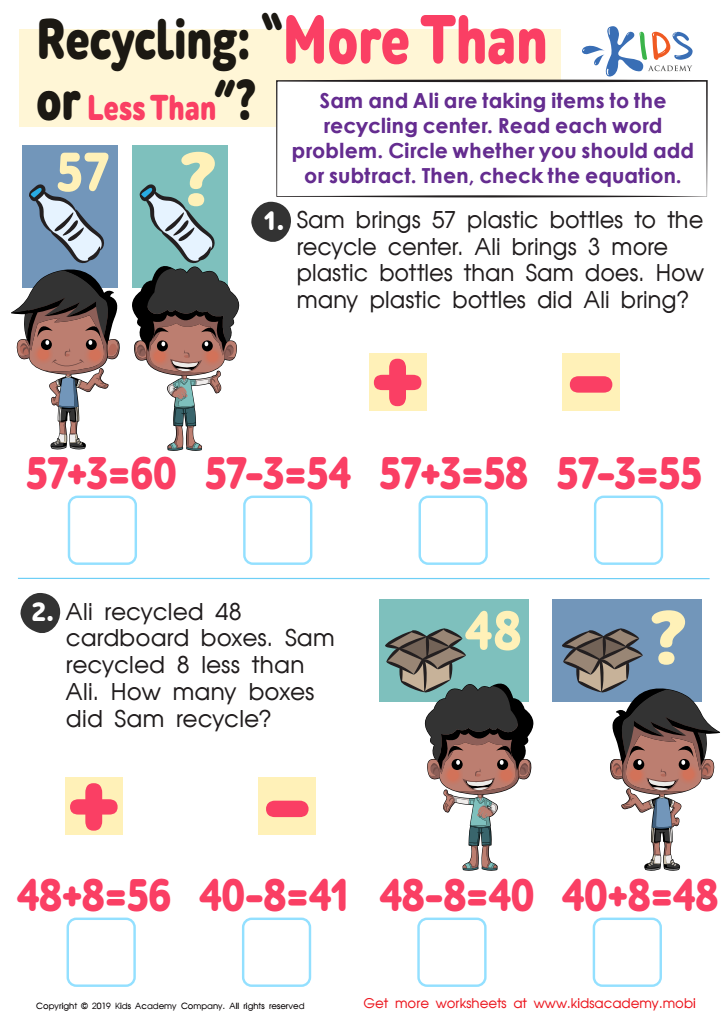

Recycling - More or Less Worksheet
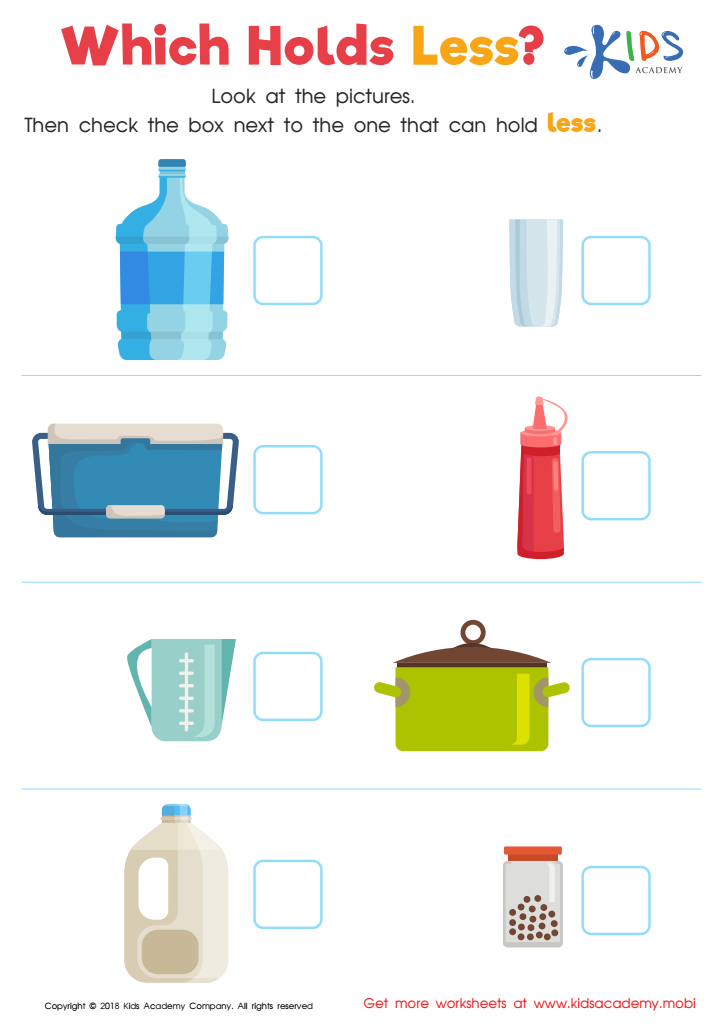

Which Holds Less? Worksheet
Comparing quantities is a foundational math skill crucial for children ages 3-4, as it lays the groundwork for their future mathematical understanding. During these formative years, young children are naturally curious about their surroundings, and engaging them in comparing quantities nurtures this curiosity. When parents and teachers focus on this skill, they are essentially helping children to develop critical thinking and problem-solving abilities.
Through activities like sorting toys, counting snacks, or comparing groups of objects, children learn to identify differences and similarities. This process builds vocabulary, as they learn terms like “more,” “less,” “equal,” and “fewer,” enhancing their language skills alongside mathematical understanding. Additionally, comparing quantities provides a context for practicing one-to-one correspondence, which is vital for effective counting.
Furthermore, fostering an early appreciation for math helps establish a positive attitude towards the subject. When children feel confident in their ability to compare and categorize, they will find joy in exploring further mathematical concepts as they grow. Ultimately, prioritizing comparing quantities not only builds foundational math skills but also promotes cognitive development and critical thinking, key ingredients for lifelong learning and success.
 Assign to My Students
Assign to My Students



















